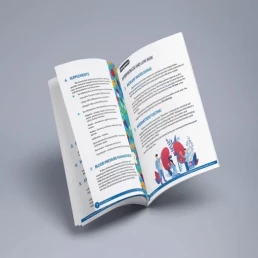According to this study, kidney patients take more than nine medications daily. Some medicines are used to manage the cause of chronic kidney disease (CKD), while others help manage CKD complications. Yet, others can be used to manage complications of other medications. There are many questions a good provider should ask when prescribing medicines to kidney patients. However, sometimes these questions are missed. It is, therefore, crucial for kidney patients to be aware of these questions. So, what are the five questions kidney patients should ask before taking a new medication?
Five questions kidney patients should ask before taking a new medication
By Majd Isreb, MD, FACP, FASN, IFMCP
Is it necessary?
There are many instances when a medication may be inappropriate—for example, using an antibiotic for a viral infection. However, with the short time providers spend with their patients, it is not uncommon to see medication being prescribed before any attempt at lifestyle modifications. Lifestyle modifications should be the first step in the management of many chronic diseases. This includes educating patients and coaching them on these modifications for at least six months.
Does it harm the kidneys?
Many medications can cause direct or indirect harm to the kidneys, and every day there is a newer medication on the market. Sadly, some providers may not be aware if a drug being prescribed is harmful to the kidneys or not. It is, therefore, necessary for the patient to ask themselves and their provider that question.
The following table shows a list of common medications and how they may negatively affect the kidneys. This is not an exhaustive list and should be used in consultation with the provider or the nephrologist.
It is also important to remember that some medications commonly used for kidney patients can be harmful in certain situations. For example, a diuretic (water pill) can become dangerous if the patient is not eating or drinking well.
Courtesy: Lara Zakaria, PharmD CNS CDN IFMCP
Should the dose be adjusted to kidney function?
Many of the prescribed medications are excreted by the kidneys. Therefore, the doses of these medications should be adjusted according to the level of kidney function to avoid toxicity or side effects. Some medicines should be entirely discontinued at the advanced stage of kidney disease. This website can be accessed to see the dose adjustment needed for a specific drug according to the kidney function.
Does it interact with other medications?
Drugs can interact with each other in various ways. For example, a medication can affect the absorption of others by the gut. It may affect the way another drug is transported in the circulation. It may decrease or increase its breakdown by the liver or other organs. It can also affect its excretion by the kidneys or the gut. This interaction checker is a valuable tool for providers and patients to see if a drug that is being prescribed interacts with another one that the patient is already taking.
Does it affect micronutrients?
Micronutrients are essential for every structure and function in the human body, including but not limited to the function of the heart, blood vessels, and immune system. Thousands of enzymes in the body require micronutrients for optimal function. Some medications interact with micronutrients, and micronutrients may interfere with the action of drugs. The is a field of study called Drug-Induced Nutrient Depletion (DIND), and many books are written about it. The following table summarizes some of kidney patients’ most commonly used medications with their nutrient interactions.
The bottom line
Before taking a new medication, kidney patient should ask themselves and their provider the following questions: Is it necessary? Does it harm the kidneys? Does it interact with my other medications? Should the dose be adjusted for my kidney function? Does it interact with micronutrients? Please do not change or stop your medications without checking with your provider or nephrologist.







